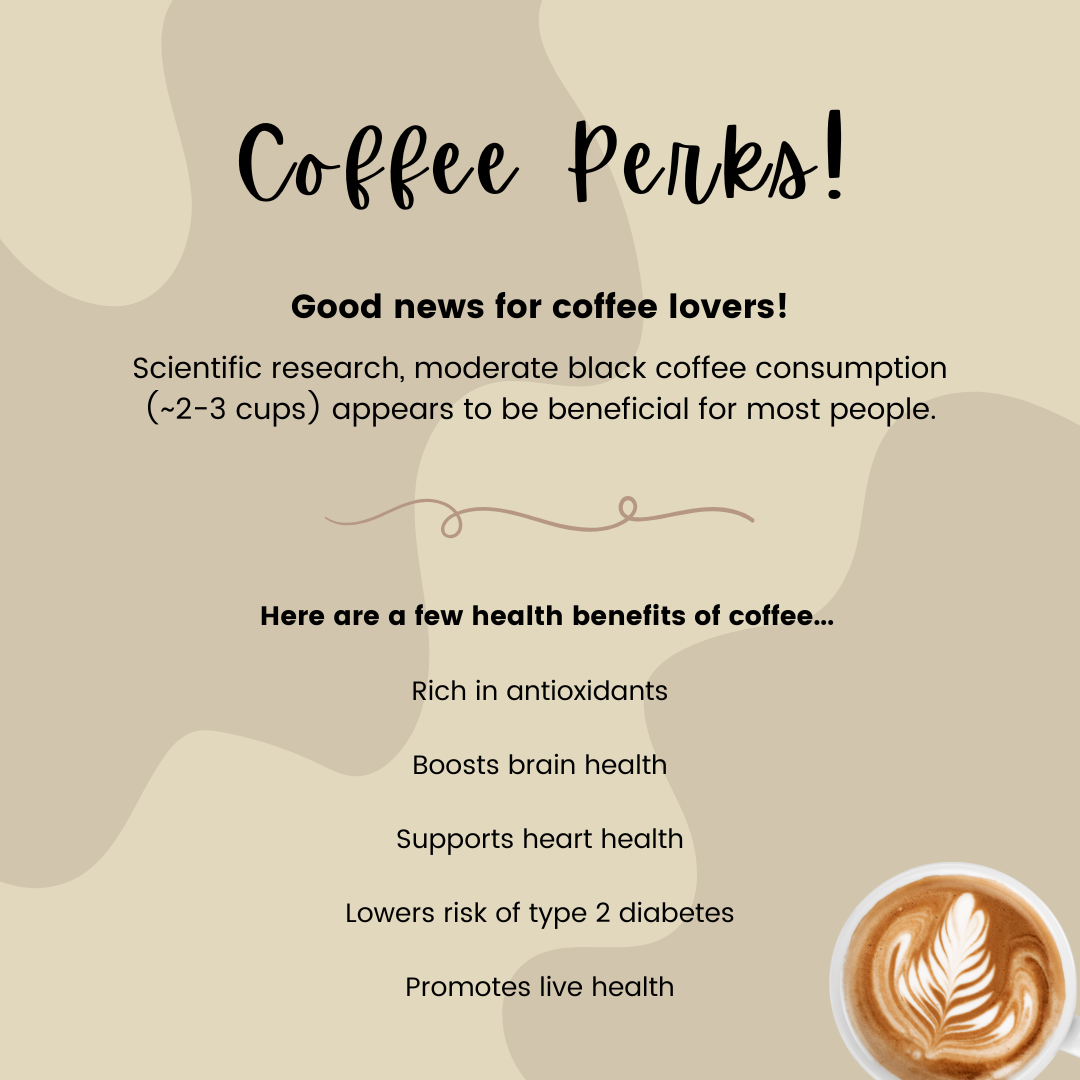Beyond the energy boost it provides, coffee also offers several health benefits -
-
Rich in Antioxidants
These protect the body from oxidative stress and inflammation. Coffee contains several polyphenols, including chlorogenic acid, which has been shown to reduce inflammation and may help lower the risk of chronic diseases like cardiovascular disease and cancer.
-
Boosts Brain Health
Caffeine, the primary active ingredient in coffee, has been linked to improved cognitive function. Caffeine can enhance alertness, attention, and reaction times by blocking adenosine receptors in the brain. A 2020 and 2023 review suggests that moderate coffee intake (less than 4 cups per day) can reduce the risk of cognitive decline. Additionally, regular coffee consumption may lower the risk of neurodegenerative diseases like Alzheimer's.
-
Supports Heart Health
Contrary to older beliefs that coffee may raise blood pressure and negatively affect the heart, recent studies suggest moderate coffee consumption can actually benefit heart health, suggesting that coffee's anti-inflammatory properties, alongside improved blood vessel function, contribute to this protective effect.
Note studies on this topic only refer to black coffee, and additives like sugars, syrups and milk were not included.
-
Lowers Risk of Type 2 Diabetes
Numerous studies have found an inverse relationship between coffee consumption and the risk of developing Type 2 diabetes. A 2014 study concluded that both caffeinated and decaffeinated coffee are linked to a lower risk of Type 2 diabetes. This could be due to the bioactive compounds in coffee that improve insulin sensitivity and glucose metabolism.
-
Promotes Liver Health
Many studies have highlighted the protective role of coffee in liver health. It has been found that coffee drinkers have a lower risk of developing liver conditions like cirrhosis and non-alcoholic fatty liver disease. Researchers believe this is due to coffee's ability to reduce liver inflammation and fibrosis.

Looks pretty good on paper, doesn’t it?! We think so.
There are a few groups of people who should limit (maybe even avoid!) their caffeine intake. This includes, but isn’t limited to, pregnant and breastfeeding women, individuals on specific medication, those with severe heart conditions under the advice of a professional, and children. As always, this is general advice and consumption is very individualised.
Overall though, from brain health to reducing the risk of chronic diseases, coffee's benefits are becoming more supported by scientific research. While moderate coffee consumption appears to be beneficial for most people, it's important to be mindful of potential side effects if consumed in excess. Everything in moderation!
And now, you have no excuse not to buy our amazing drip coffee bags - coffee snob (me) approved!



